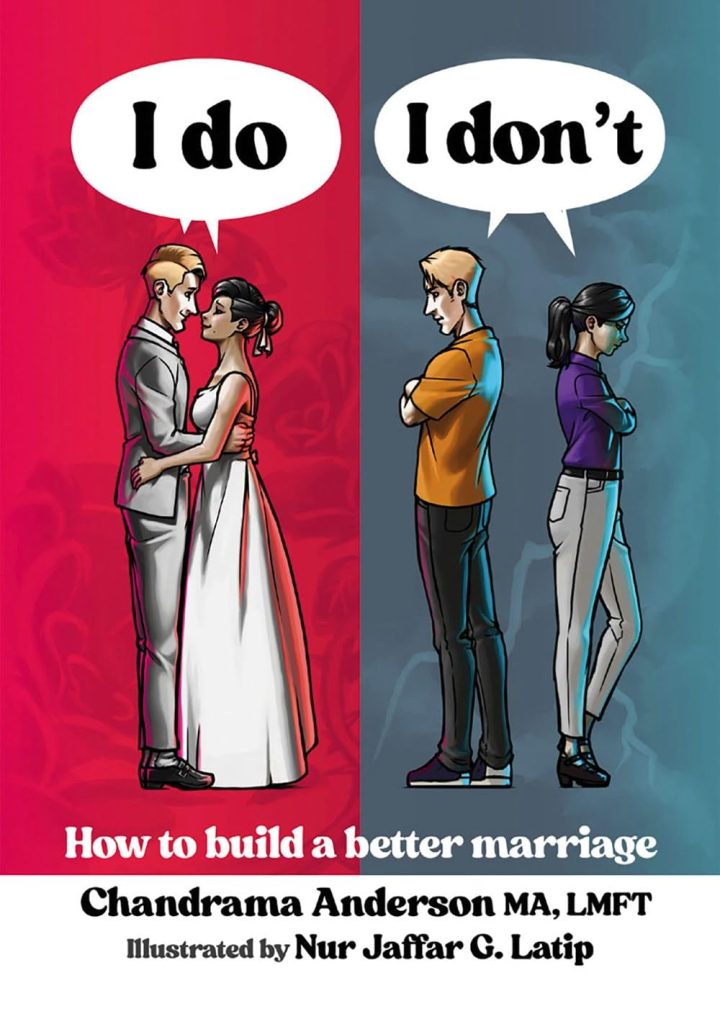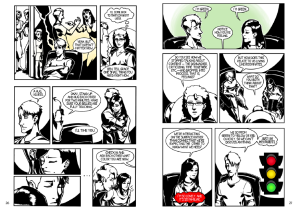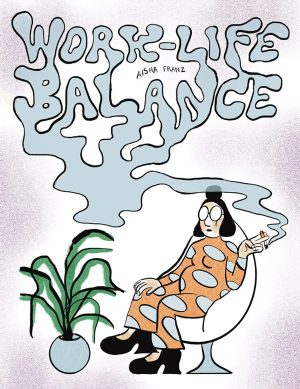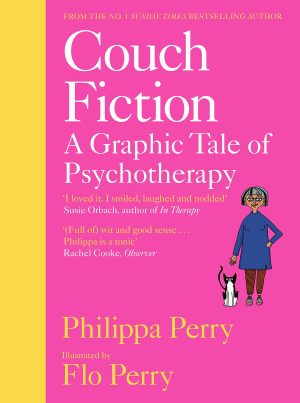Review by Ian Keogh
A back cover quote considers Chandrama Anderson has invented a new genre for comics in graphic therapy, and while that discounts Philippa Perry and Junko Graat’s Couch Fiction, it’s not far from the truth. Anderson has been a marriage therapist since 2007, and realises inadequate communication as the starting point for misunderstandings leading to greater relationship stresses. It’s interesting, however, that the term used in the subtitle is ‘marriage’ with all that implies. Why not relationship?
An illustration leading into the book posits that we all carry three extra voices, those of each of our parents and an unconscious voice, all represented here by different coloured thought balloons as we follow couple Ben and Grace through assorted chapters. These are a progression, each titled to reflect specific emotional circumstances. They offer practical suggestions regarding how to avoid falling into familiar negative routines that solve nothing, and each ends with tables contracting the salient points and applying them to other aspects of life. There are also spaces to add information specific to your relationship and tests regarding the chapter’s content.
The illustrations are simple enough to convey the information universally, but artist Nur Jaffar G. Latip has been handed an incredibly tricky task. Drawing a range of complex emotions on faces, that then also shift from panel to panel would strain the skills of most artists. Sometimes Latip can’t manage, but most of the time he does, and this is a skill that shouldn’t be underestimated.
While I Do, I Don’t appears simple, it’s not. The longer into it one delves, the more needs to be learned, and as with any advice, it’s only relevant if people want to take it. Some will be unable to reduce their emotional response to analytical levels even when a relationship is at stake, yet if you’re interested enough to look at I Do, I Don’t in the first place, the chances are you’re going to find situations relevant to your own relationship. The advice appears practical, and is from a qualified source, but the only true test is going to be applying it, and that’s way beyond the bounds of a short review.





